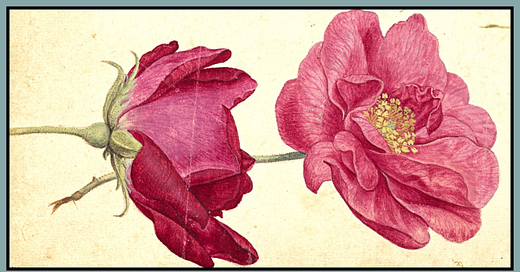“The Spectre of a Rose”
Understanding the power of medieval paradox, with help from T. S. Eliot.
“Merry” and “tragical”? “Tedious” and “brief”?
That is hot ice and wondrous strange snow!
How shall we find the concord of this discord?
—A Midsummer Night’s Dream
Last week we looked at medieval warfare through the lens of paradox, seeing war and peace as an expression of “the paradoxical mode of thought that permeated medieval culture and that found in the great questions of human life—as in human nature itself—a wholeness and harmony of opposites.” But what exactly is paradox? And why bother talking about it in the twenty-first century, when life—as we learn from the news media—is an endless succession of domestic crises, foreign threats, and looming global catastrophes?
It is worth talking about because Aristotle taught that paradoxical language is both pleasing and enlightening, and the German poet and philosopher Friedrich von Schlegel wrote that paradox is “everything simultaneously good and great,” and the literary scholar Cleanth Brooks believed that paradox was vital to poetry written by man, and the English writer Thomas De Quincey believed that paradox was vital to man’s discernment of the poetry written in the cosmos.
It is worth talking about because St. Augustine found paradox in the deep realities of the created world, whose “beauty … is formed of the eloquence of contrarities in nature,” and the ancient Greeks found it in the deep realities of all living things, and Blaise Pascal found it in the deep realities of human existence, insisting that “the true religion must necessarily … give us a reason” for the “astonishing contradictions” in our nature.
Finally, it is worth talking about because some of the boldest paradoxes in the history of human thought and literature were uttered by a Man whom countless people from all over the world revere as a divine Teacher, and the incarnation of Truth, and the voice of eternal Wisdom:
Happy are ye when men shall hate you…
Whosoever will save his life, shall lose it…
I am the resurrection, and the life: he that believeth in me, though he die, yet shall he live.
Keep reading with a 7-day free trial
Subscribe to Via Mediaevalis to keep reading this post and get 7 days of free access to the full post archives.





